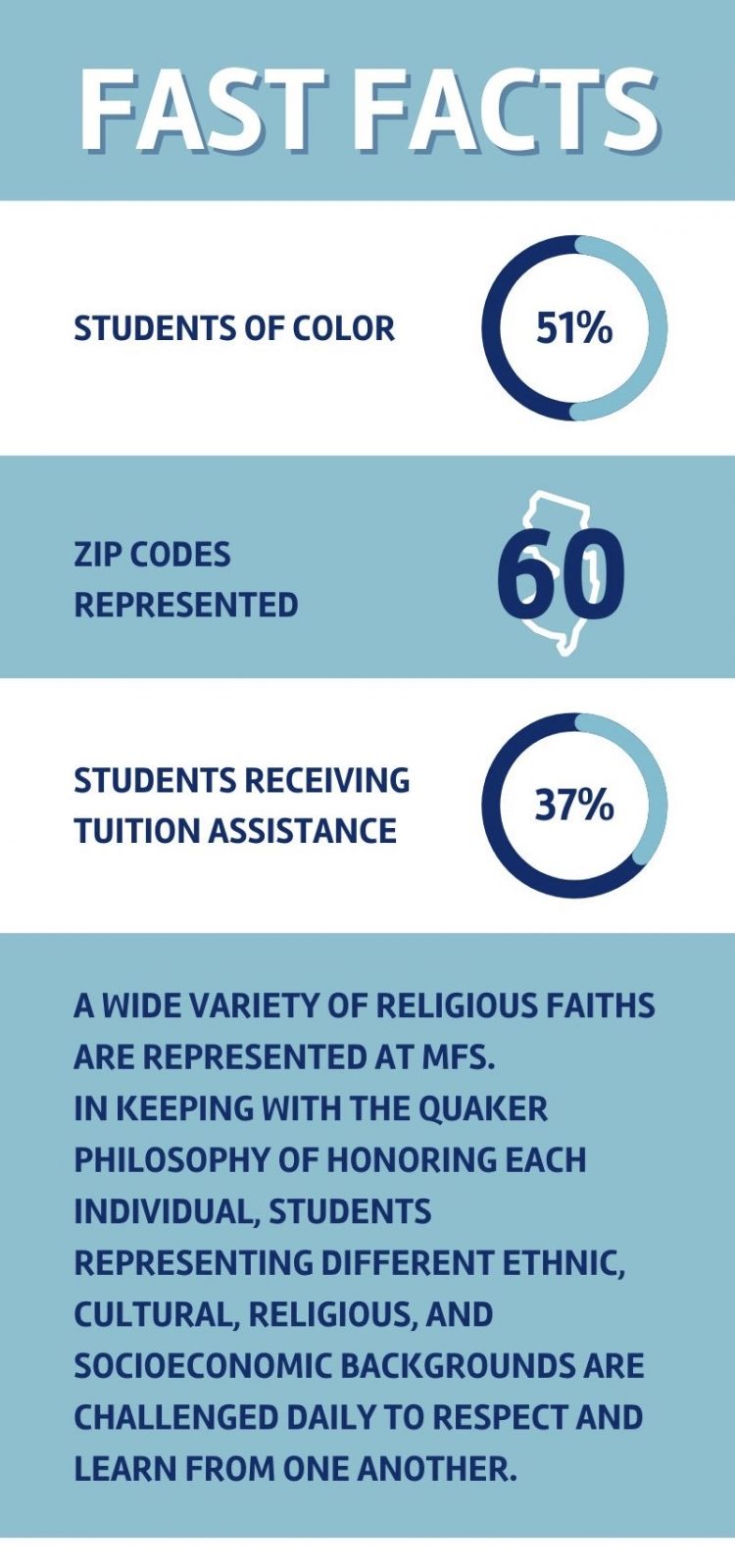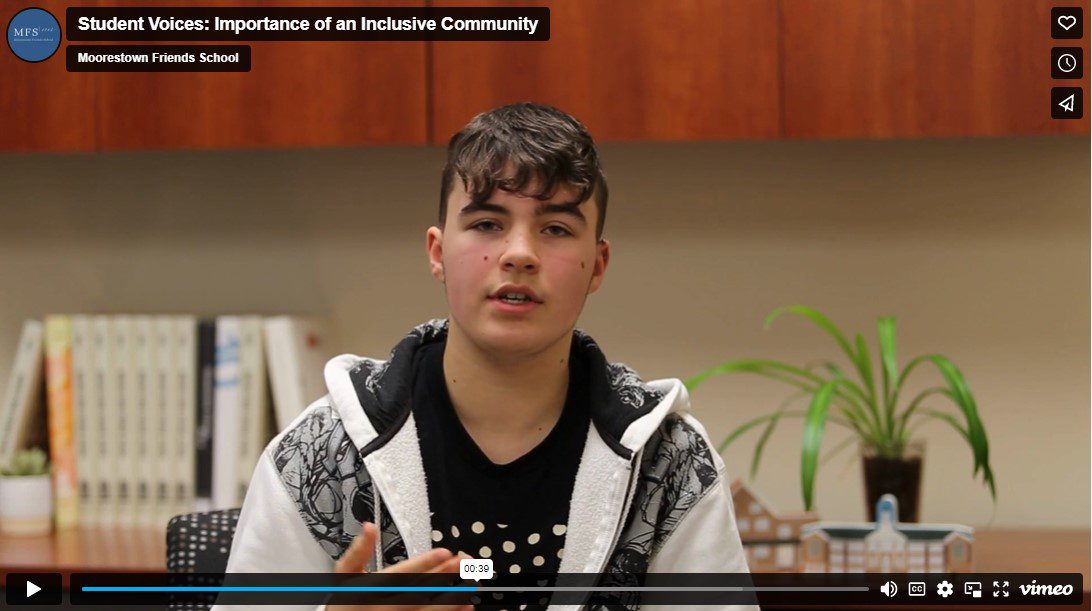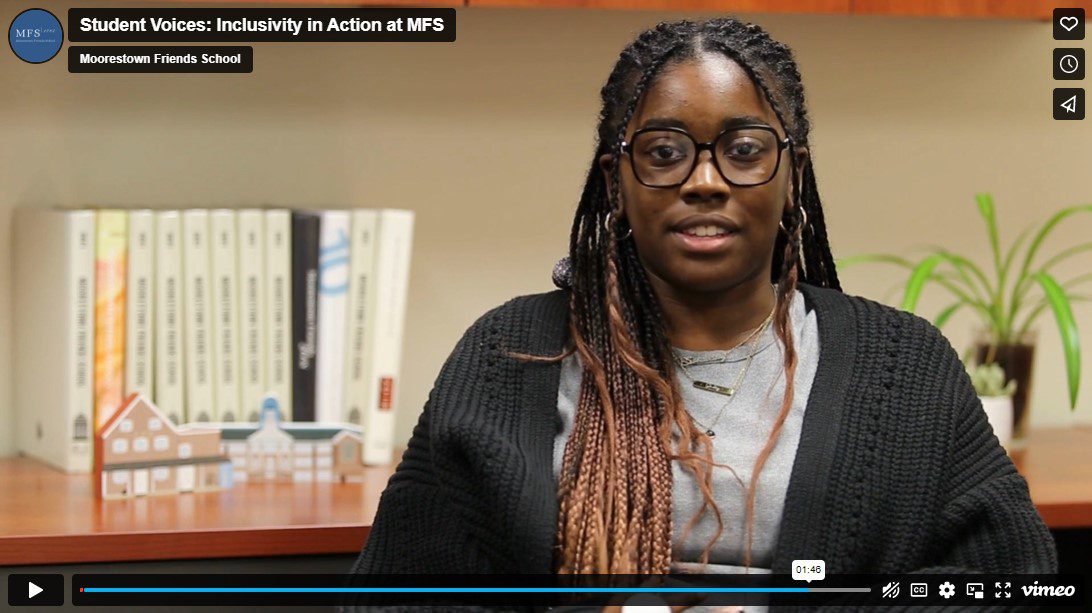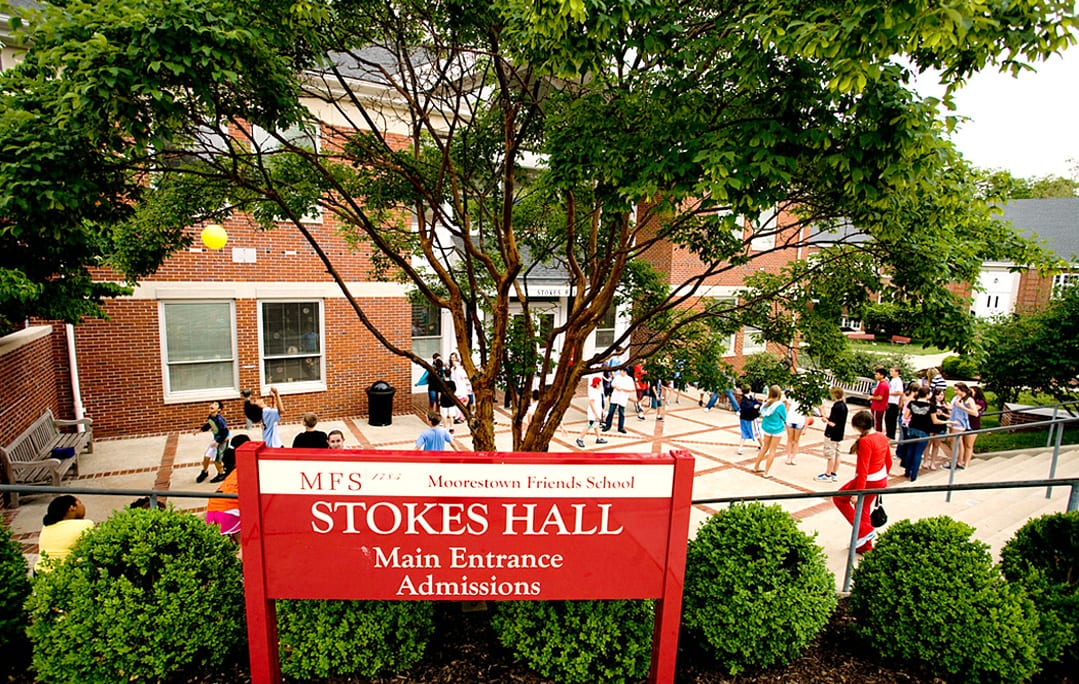Diversity, Community, and Belonging
Moorestown Friends School is a community rooted in Quaker values which affirm each individual. We are intentional about creating spaces where students learn to not only respect one another, but honor our differences in order to foster a culture of belonging. As a school with students in Preschool – Grade 12, we are dedicated to supporting each student along their journey extending beyond the walls of the conventional classroom to experiential learning on and off campus.
We are a community where diversity, equity, and inclusion are embedded in our core values. We welcome students to engage in essential conversations around diversity to further their understanding of what it means to thrive as a global citizen and serve as an advocate for social justice. Joined by division coordinators, we foster a variety of opportunities for every member of our community to engage in this work through the curriculum, affinity spaces, special programming, and student-led initiatives with faculty support.
“My return to MFS comes at a time when now, perhaps more than ever, I understand how valuable it is to see our differences and work together to foster communities where people feel they belong.”
– Chanelle Walker ’01, Director of Diversity, Community, and Belonging
Diversity, Equity, Inclusion, and Belonging Commitment Statement
At Moorestown Friends School, our Quaker mission and testimonies compel us to nurture and promote an inclusive community for all. We use an intellectual and empathetic approach to seek truth for a just and equitable society. In order to achieve that goal, Moorestown Friends School embraces diversity, celebrates all differences, encourages critical thinking, and engages in respectful discourse, allowing community members to gain a deeper understanding of themselves and others. We oppose any behavior that denies the dignity and humanity of others, and we hold all members of our community accountable for the impact of their actions and language. We are open to the evolutionary nature of what it means to actively support and sustain a culture of belonging, while committing to student well-being and success.
Approved by School Committee, November 19, 2021

Chanelle Walker ’01
Director of Diversity, Community, and Belonging
856-914-4432
Video: Student Voices
Overviews by Division
Our commitment to diversity, equity, inclusion, and belonging (DEIB) here at MFS is rooted in our Quaker values and informed by ongoing research that confirms the myriad benefits for all children of creating and sustaining a learning community that recognizes, explores, and celebrates the diverse identities and backgrounds of the people we meet both within and beyond our campus.
Below are brief overviews of DEIB efforts at each divisional level provided by Diversity Coordinators:
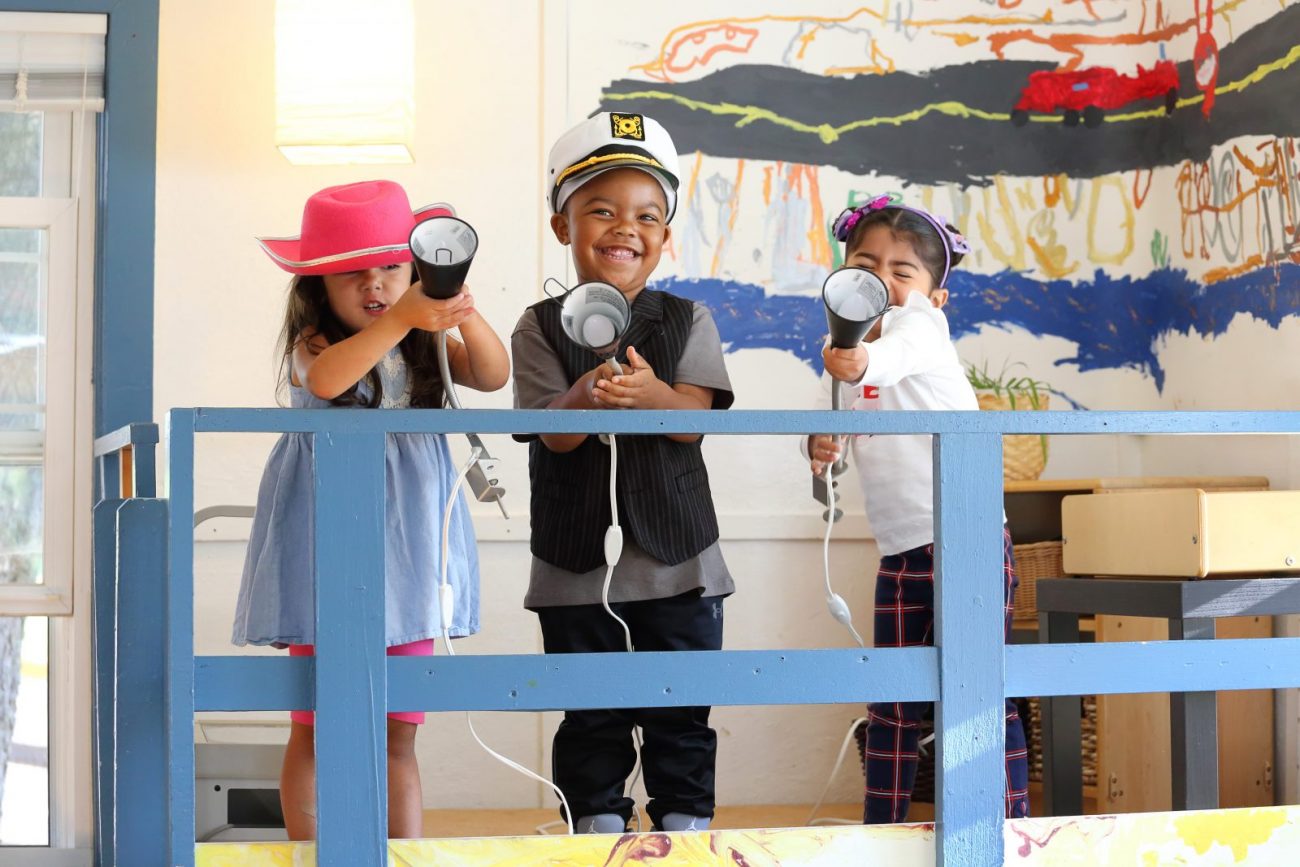 DEIB work is centered in everything we do in the Lower School – in the curriculum, in special events, in daily routines and classes, in how we treat one another. Teachers focus lessons and entire units of study on identity, affirming who we are and what makes us unique. In the classroom and as a community, we celebrate our ancestors and cultures during Heritage and History Months, and we share the many holidays we observe in fun, educational ways. In lessons and special programming like the MLK Day Community Event, students learn about social justice – exploring what it means to advocate for peace and positive change, to work across differences, to stand up for each other. Collections in the Library, and in each classroom library, are curated through a DEIB lens, ensuring that students have access to books that are culturally competent and feature diverse perspectives. With the Quaker testimonies as a guide, we practice inclusivity together – teachers, staff, students, families – to make sure everyone knows and feels that they belong!
DEIB work is centered in everything we do in the Lower School – in the curriculum, in special events, in daily routines and classes, in how we treat one another. Teachers focus lessons and entire units of study on identity, affirming who we are and what makes us unique. In the classroom and as a community, we celebrate our ancestors and cultures during Heritage and History Months, and we share the many holidays we observe in fun, educational ways. In lessons and special programming like the MLK Day Community Event, students learn about social justice – exploring what it means to advocate for peace and positive change, to work across differences, to stand up for each other. Collections in the Library, and in each classroom library, are curated through a DEIB lens, ensuring that students have access to books that are culturally competent and feature diverse perspectives. With the Quaker testimonies as a guide, we practice inclusivity together – teachers, staff, students, families – to make sure everyone knows and feels that they belong!
Pauline Williams, Lower School Diversity Coordinator
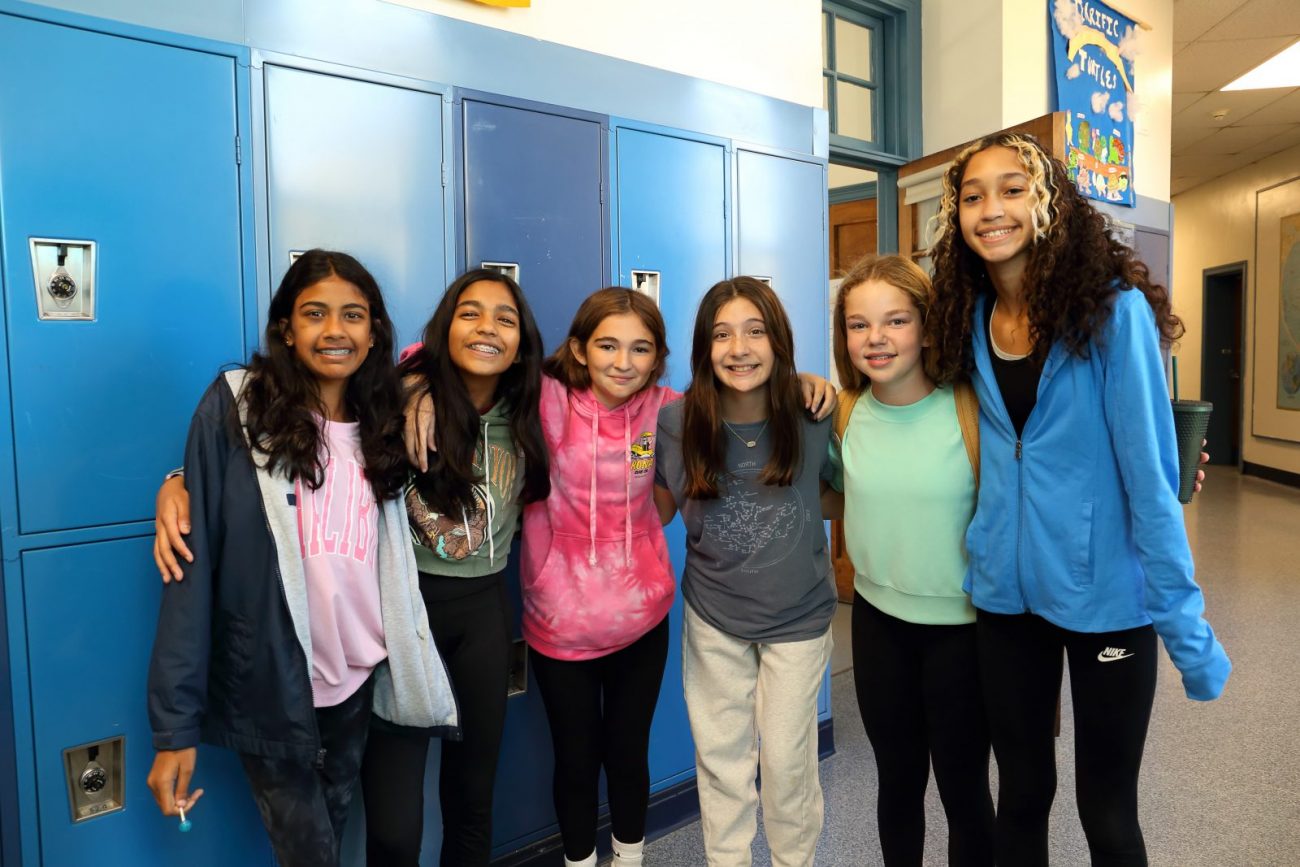 The Middle School offers a broad range of venues in which students can engage in this essential work of learning about themselves and about the world in which they live. The foundation is built upon a rich academic program that promotes cultural understanding, critical thinking, consideration of multiple and divergent perspectives, and creative collaboration. The Middle School Advisory Program presents a more intimate, grade-level setting in which DEIB-focused activities and discussions are scheduled throughout the year. Finally, both our weekly Community Assembly and Meeting For Worship (MFW) times often include topics and themes that connect to the goals of our DEIB work. There are plentiful optional opportunities for our Middle School students to be engaged, as well. This includes a dynamic, student-led Diversity Club, a Pride Alliance, and several affinity groups (modeled on our successful Upper School program) that gather students with a faculty mentor who all share a common aspect of identity in order to build mutual support and find inspiration to reach our full potential. In guiding these efforts, the Middle School Director and Dean of Students work closely with our Middle School Diversity Coordinator and the MFS Director of Diversity, Equity, Inclusion and Belonging.
The Middle School offers a broad range of venues in which students can engage in this essential work of learning about themselves and about the world in which they live. The foundation is built upon a rich academic program that promotes cultural understanding, critical thinking, consideration of multiple and divergent perspectives, and creative collaboration. The Middle School Advisory Program presents a more intimate, grade-level setting in which DEIB-focused activities and discussions are scheduled throughout the year. Finally, both our weekly Community Assembly and Meeting For Worship (MFW) times often include topics and themes that connect to the goals of our DEIB work. There are plentiful optional opportunities for our Middle School students to be engaged, as well. This includes a dynamic, student-led Diversity Club, a Pride Alliance, and several affinity groups (modeled on our successful Upper School program) that gather students with a faculty mentor who all share a common aspect of identity in order to build mutual support and find inspiration to reach our full potential. In guiding these efforts, the Middle School Director and Dean of Students work closely with our Middle School Diversity Coordinator and the MFS Director of Diversity, Equity, Inclusion and Belonging.
Tina Corsey, Middle School Diversity Coordinator
 In the Upper School at MFS, DEIB work is a student-driven partnership. The faculty provides a rich academic foundation ripe with many different options in both major and minor courses. The curriculum has a focus on learning from a plethora of different perspectives – lived experiences, affirming identities, highlighting different facets of history, shedding light on underserved and undervalued identities. The Upper School advisory program is focused on fostering interpersonal connections, centering our Quaker values, passionate student-led discussion, and various thought-provoking and engaging activities. We deepen our roots in our Quaker values during our weekly Meeting for Worship which is typically led by our Upper School Worship Planning Committee, but is sometimes co-led with various other clubs and organizations. Of the nearly 30 clubs and 13 Affinity Groups, many of them talk about their affinities, uphold their allyship, and express their interests. All of the Clubs and Affinity Groups are student-led with faculty advisors to help facilitate or to give vocabulary, and most importantly, to learn about the student experience directly from the source. There are additional times that we all come together, such as Assemblies, Community Times, and special traditions (for example the International Day of Peace, or Friendship Day) where we can connect and broaden our horizons. DEIB work in the Upper School is a team effort with the Upper School Diversity, Equity, Inclusion, & Belonging Coordinator, the MFS Director of Diversity, Equity, Inclusion and Belonging, the US representatives from the Parent/Guardian DEIB Council, students, faculty, staff, and families. Together this team hopes to create and to maintain a sense for every member of the Upper School community to feel as if they belong.
In the Upper School at MFS, DEIB work is a student-driven partnership. The faculty provides a rich academic foundation ripe with many different options in both major and minor courses. The curriculum has a focus on learning from a plethora of different perspectives – lived experiences, affirming identities, highlighting different facets of history, shedding light on underserved and undervalued identities. The Upper School advisory program is focused on fostering interpersonal connections, centering our Quaker values, passionate student-led discussion, and various thought-provoking and engaging activities. We deepen our roots in our Quaker values during our weekly Meeting for Worship which is typically led by our Upper School Worship Planning Committee, but is sometimes co-led with various other clubs and organizations. Of the nearly 30 clubs and 13 Affinity Groups, many of them talk about their affinities, uphold their allyship, and express their interests. All of the Clubs and Affinity Groups are student-led with faculty advisors to help facilitate or to give vocabulary, and most importantly, to learn about the student experience directly from the source. There are additional times that we all come together, such as Assemblies, Community Times, and special traditions (for example the International Day of Peace, or Friendship Day) where we can connect and broaden our horizons. DEIB work in the Upper School is a team effort with the Upper School Diversity, Equity, Inclusion, & Belonging Coordinator, the MFS Director of Diversity, Equity, Inclusion and Belonging, the US representatives from the Parent/Guardian DEIB Council, students, faculty, staff, and families. Together this team hopes to create and to maintain a sense for every member of the Upper School community to feel as if they belong.
Mary Anne Henderson, US Coordinator of Diversity, Community, and Belonging
 Division Diversity Coordinators
Division Diversity Coordinators
Lower School: Pauline Williams
Middle School: Tina Corsey
Upper School: Mary Anne Henderson
Special Student Groups
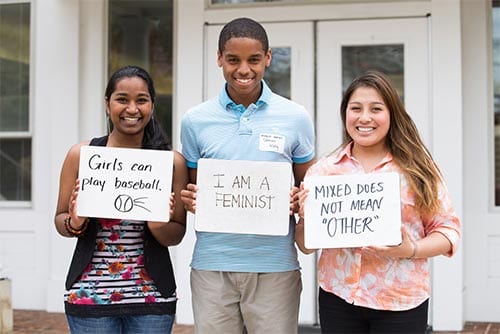 A number of organizations on campus foster diversity and community. Here are just a few:
A number of organizations on campus foster diversity and community. Here are just a few:
- Diversity Committee, a division of Upper School Student Government that discusses issues related to diversity and inclusion
- FOCUS Club, for students who identify as Christian and wish to pursue spiritual practice
- Gender Inclusivity Forum, which pursues all issues related to gender equality and hosts events such as the Challenging Stereotypes Photo Exhibition
- Girl Up, associated with an innovative campaign of the United Nations Foundation, aims to give young women the opportunity to become global leaders
- Martin Luther King, Jr. Club is designed to bring together students of all racial and cultural origins for weekly lunch meetings
- PRIDE Club, a club for LGBTQ+ students and allies who meet to discuss issues impacting and surrounding the LGBTQ+ community. PRIDE club also hosts the annual events Coming Out Day and Day of Silence.
Affinity Groups
Middle and Upper School students have the opportunity to meet in Affinity Groups throughout the year. The term “Affinity Group” is used as a bringing together of people who have an identifier in common, e.g. race, gender, religion, family status, etc. Affinity Groups are for individuals who identify as members of the group and can speak to the experience of being a member of the group from the “I” perspective. Below is a sampling of both Middle and Upper School Affinity Groups:
Middle School Affinity Groups
- Affirming Neurodiversity
- All in the Family
- Black Student Union
- Christian Student Union
- East Asian Student Union
- Jewish Student Union
- LatinX Student Union
- LGBTQ+
- Muslim Student Union
- South Asian Student Union
Upper School Affinity Groups
- Black Student Union
- Children of Families with Special Circumstances
- Christian Student Union
- East Asian Student Union
- Gender Non-Conforming
- Jewish Student Union
- LatinX Student Union
- LGBTQ+
- Multiracial Student Affinity Group
- Muslim Student Union
- South Asian Student Union
- Students with Disabilities
- Women of Color
